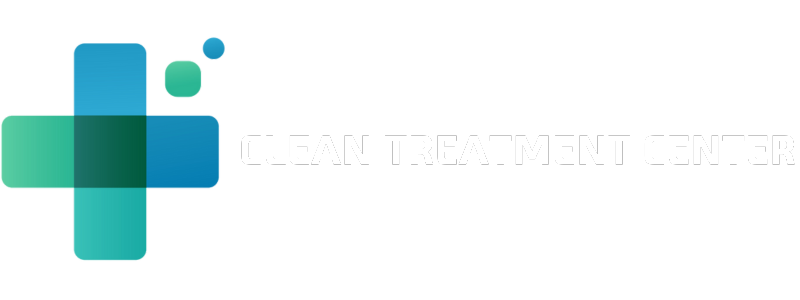Does Someone You Love Need Addiction Treatment? 12 Warning Signs for Thousand Oaks Families
- CLEAN Treatment Center

- May 16, 2025
- 3 min read

Finding the line between “rough patch” and “clinical problem” is hard—especially when the person you care about downplays what’s happening. Use this locally-focused checklist to spot red flags early, understand next-step options in Ventura County, and decide when to bring in professionals like Clean Treatment Center in Thousand Oaks.
1. Why Early Detection Matters in Ventura County
Overdose deaths climbed again in 2024—903 cases under the Ventura County Medical Examiner, 46% linked to fentanyl.
Roughly 1 in 5 Ventura adults report heavy or binge drinking, higher than the state average.
Families who act within the first six months of visible substance-use changes are twice as likely to get loved ones into care, according to national helpline data.
2. The 12 Most Telling Signs Your Loved One May Need Treatment
Category | Red Flags to Watch For |
Physical | Sudden weight change; pinpoint or dilated pupils; unexplained bruises or “nodding off” during the day. |
Behavioral | Repeated missed work/school; secretive phone calls; driving under the influence; prescription bottles switching locations |
Mood & Mental Health | Extreme swings (euphoria → irritability); new anxiety or panic attacks; talk of hopelessness or self-harm. |
Social | Pulling away from long-time friends; only associating with new “party” peers; losing interest in family events |
Financial | Money “borrowing” more than once a week; valuables disappearing; unpaid bills despite a steady paycheck. |
Legal | Recent DUI, public-intoxication citation, or domestic-disturbance call. |
Health-Care Utilization | Multiple ER visits for “accidents” or “flu-like” withdrawal symptoms. |
Medication Misuse | Finishing opioid or benzodiazepine prescriptions early; doctor-shopping for refills. |
Tolerance & Withdrawal | Needing more alcohol/drugs for the same effect; shaking, sweating, or insomnia when stopping. |
Failed Cut-backs | “I’m only drinking on weekends” promises that never stick longer than two weeks. |
Dual-Diagnosis Clues | Depression or PTSD that worsens when substance use spikes. |
Family Impact | Younger siblings copying behavior, marital conflict rising, or children expressing fear at home. |
Rule of thumb: Two or more items from different categories, persisting for a month, signal it’s time for a professional assessment.
3. When Outpatient Rehab Is the Right First Step
Daily life still functions (job, classes, or parenting aren’t completely derailed).
The person is willing to attend therapy but needs more structure than weekly counseling.
There’s a stable home in Thousand Oaks or nearby where they can sleep each night.
Co-occurring mental-health symptoms (anxiety, depression) are emerging but don’t yet require hospitalization.
Clean Treatment Center's Intensive Outpatient Program (IOP) and Partial Hospitalization Program (PHP) both fit these scenarios, offering 9–30 hours of evidence-based therapy each week without removing your loved one from familiar surroundings.
4. How to Approach the Conversation—Family Tested Tips
Pick a calm window—not when they’re intoxicated or rushing to work.
Lead with concern, not blame: “I’ve noticed you’ve lost weight and seem exhausted lately. I’m worried.”
Use concrete examples (missed rent, DUI) to avoid debate about “opinions.”
Offer specific help: “We can schedule a same-day assessment at Clean Treatment Center.”
Set boundaries (no drugs in the house, no borrowing money) and stick to them.
Bring in a professional—A licensed interventionist or Clean Treatment Center therapist can facilitate a structured meeting if resistance is high.
5. Local Resources If a Crisis Erupts
Service | Phone / Link | When to Call |
VCBH Access/Crisis Line | 1-866-998-2243 (24/7) | Suicidal talk, violent threats, or need for mobile crisis team |
Suicide & Crisis Lifeline | 988 (call or text) | Any mental-health emergency, nationwide |
SAMHSA National Helpline | 1-800-662-HELP | Treatment referrals outside office hours |
6. Why Families Choose Clean Treatment Center
Dual-Diagnosis Expertise: Integrated psychiatric and addiction care—critical when mood swings and substance use intertwine.
Flexible Schedules: Day, evening, and weekend IOP tracks so parents can keep working.
Evidence-Based Therapies: CBT, DBT, EMDR, and family counseling under one roof.
Immediate Access: Same-day assessments and fast insurance verification.
Community Roots: New flagship clinic at 123 Hodencamp Rd puts treatment minutes away for Thousand Oaks residents.
Ready for answers? Call (888) 538-3884 or complete our confidential assessment form. One conversation today can prevent a crisis tomorrow.
Frequently Asked Questions
What if my loved one refuses help? Keep boundaries firm and re-offer help regularly. Many people enter treatment after 5–7 “no’s.” Family therapy at Clean Treatment Center can improve acceptance.
Is outpatient treatment confidential? Absolutely. Federal (42 CFR Part 2) and California laws protect patient privacy and bar disclosure without written consent.
Last updated: June 2025 — We review local statistics and crisis contacts every six months to keep this guide current for Thousand Oaks families.




Comments